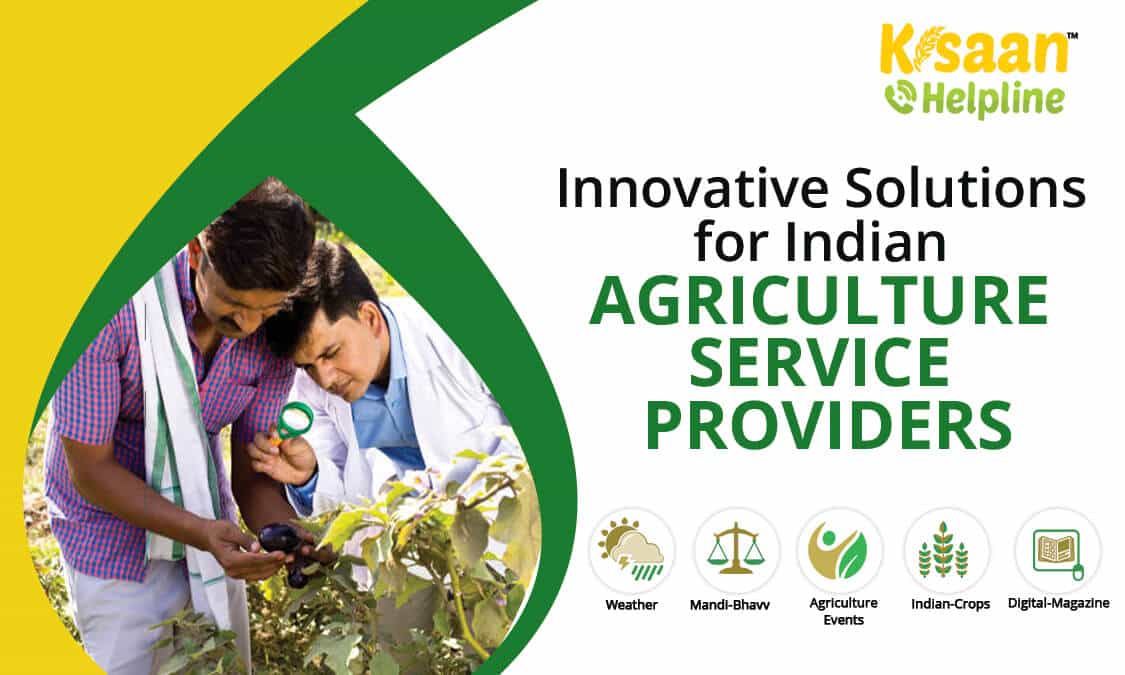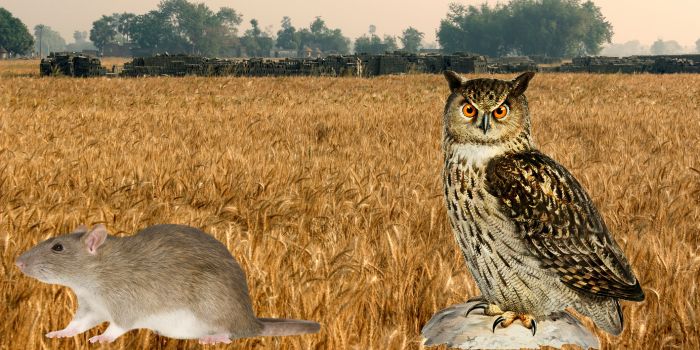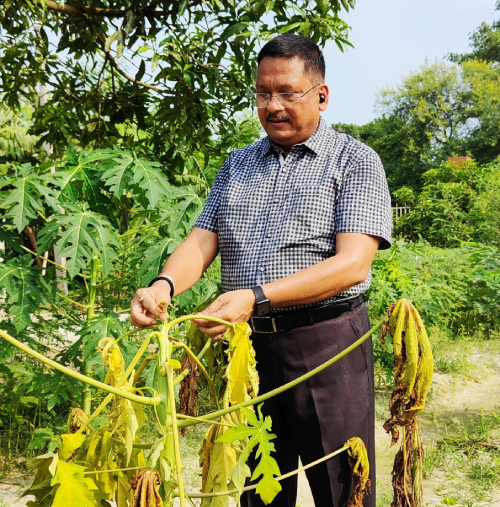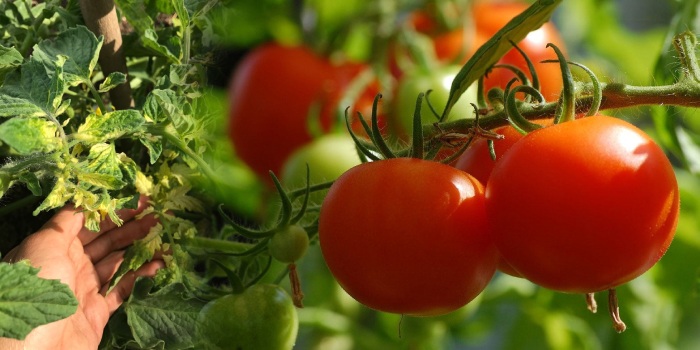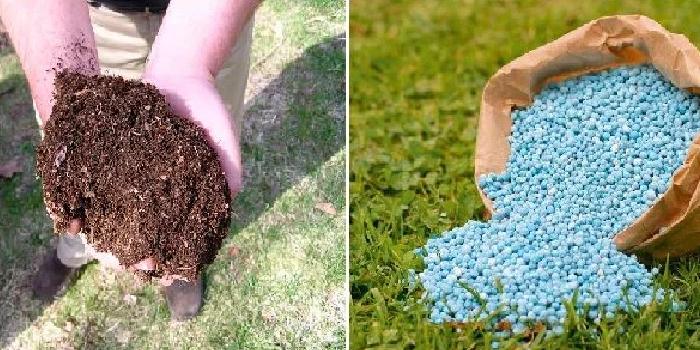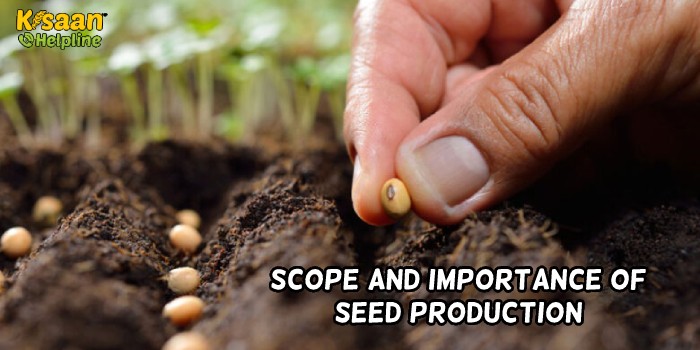
Dr Koteshi Lamani* and Dr V.P. Singh**
Krishi Vigyan Kendra, Barasin, Sultanpur- Acharya Narendra Deva University of Agriculture & Technology, Kumarganj, Ayodhya-224 229 (Uttar Pradesh)
Indian Agriculture has made enormous progress in the last 75 years. Food grains production has risen from 50 million tonnes in 1947 to 316.06 million tonnes in 2021-22 (As per 2ndAdvance Estimates for 2021-22). The country has advanced from a situation of food scarcity and imports to that of food security and exportable surpluses. Substantial increase in yield and quality of crops depends upon a number of factors viz., inputs like fertilizers, irrigation and plant protection measures and suitable agronomic practices. However, the use of high-quality seed thus plays a pivotal role in the crop production. The use of poor-quality seeds nullifies the utility of all agronomic practices and every other input applied to the crop no matter how lavishly they are applied. Economically, the cost of seed is a very small component of the total cost of production. Sindhur Sen (1974) summarizes the importance of seed quality thus “What are known as the seeds of hope may turn into seeds of frustration” if they are not of high quality. It is therefore, important to use the seed confirming to the prescribed standards in terms of high genetic purity, physical purity, physiological quality and health quality. Since ages, Indian farmers were mostly dependent on traditional varieties; therefore, seed requirements were met through farm saved seeds. The use of traditional varieties coupled with farm saved seeds whose quality is not guaranteed, resulted in drastic reduction in production.
SCOPE
India is a vast country and bestowed with varied soils and has got different agro climatic zones, enabling year-round cultivation of crops. By and large, most seed crops are grown during Kharif season. However, most of the vegetable crops are produced in Rabi season and they possess better quality seeds than the crop grown in kharif. Indian farmers can practice with multiple cropping systems. The farmers can opt for different crops like cereals, pulses, oil seeds, vegetables, fibre crops, etc., in all the three seasons viz., Kharif, Rabi and summer.
Importance of Seed in Crop Production:
Seed is the critical determinant of agricultural production on which depends the performance and efficacy of other inputs. Quality seeds appropriate to different agro-climatic conditions and in sufficient quantity at affordable prices are required to raise productivity. Availability and use of quality seeds is not a onetime affair. Sustained increase in agriculture production and productivity necessarily requires continuous development of new and improved varieties of crops and efficient system of production and supply of seeds to farmers. The National Seeds Policy 2002 clearly emphasizes that “It has become evident that in order to achieve the food production targets of the future, a major effort will be required to enhance the seed replacement rates of various crops. This would require a major increase in the production of quality seeds”
The progress was very fast from last three decades. The green revolution was only possible with production of generally pure seeds possessing other qualities namely high generation, high vigours high physical purity and sound health. Hence green revolution is in fact seed revolution. Only seeds of assured quality can be expected to respond to fertilizer and other inputs in expected manner, otherwise see of hope may turn into seed of frustration. Among the inputs used by farmers seed in the cheapest input. It is basic inputs and forms small part of the total cost of cultivation. The good seed also increase the efficiency of the factor of crop production.
Difference between seed and crop production :
| Seed production | Crop production |
| Basic seed should be from an authentic source | Any seed material can be used |
|
Seed plot should be selected carefully for better performance, as per edaphic and environmental requirement |
Can be grown in any area |
| Needs isolation from other varieties | Isolation is not necessary |
| Needs technical skill for maintenance of quality | Special technical skill is not required |
| Maintenance of genetic purity is important | Genetic purity is not required |
| Rouging is compulsorily practiced | Rouging is not practiced |
| Harvesting should be done at physiological/ harvestable maturity | Harvested at field maturity |
| Resultant seed should be vigorous and viable | Question of viability does not arise |
| Importance is given to seed quality rather than the yield | Importance is given more to yield |
Difference between Seed and Grain :
| S. No | Seed | Grain |
| 1 | Any plant part used for propagation is seed. It includes seeds category, rhizome, grafts etc. |
It is final produce of grain crops used for consumption. |
| 2 | Can be treated with fungicide, pesticide. | Not treated with fungicide and Pesticide. |
| 3 | Embryo is important. | Endosperm is important. |
| 4 | Viability is important. | Viability never considers. |
| 5 | Genetic purity must. | Genetic purity not necessary |
| 6 | Comes under preview of seed acts. | Comes under preview of food acts |
Importance of Seed Production
Availability of quality seeds of improved cultivars is considered crucial for realizing productivity and adoption of cultivars in different agro-climatic conditions. The quality of seed alone is known to account for at least 10-15% increase in the productivity (ICAR 1993). However, lack of quality seed continues to be one of the greatest impediments to bridging the vast yield gap. Therefore, to approach the potentially realizable yield of a cultivar, production and distribution of quality seed is essential. The good quality seed should have the following characters:
- Genetic purity, and uniformity and should conform to the standards of the particular cultivar.
- Disease free, viable seeds.
- Free from admixtures of other crop seeds, weeds and inert matter.
- Acceptable uniformity with respect to size, shape and color.
Benefits of Seed Production: Systemized crop production is known as seed production. In seed production adequate care is given from the purchase of seeds upto harvest adopting proper seed and crop management techniques. The benefits of seed production are
- Higher yield
- Higher income
- Higher quality seed for next sowing
There are two types of seed production i.e. Varietal and hybrid
Seed production based on the type of seed used for multiplication.
The difference between varietal and hybrid seed production are as follows:
| Varietal seed production | Hybrid seed production |
| It is single parent multiplication | It needs two to many parents |
| Isolation distance requirement is less | Isolation distance requirement is more |
| Production is by open pollination | Production is by managed control pollination (Female) |
| Seed can be used continuously for 3/4/5 generations | Seed has to be changed every time |
| Production technique is uniform (multiplication) | Technique differs with crop |
| Production care is less | Production care is more |
| Yield will be lower | Yield will be higher |
| Profit is less | Profit is higher |


